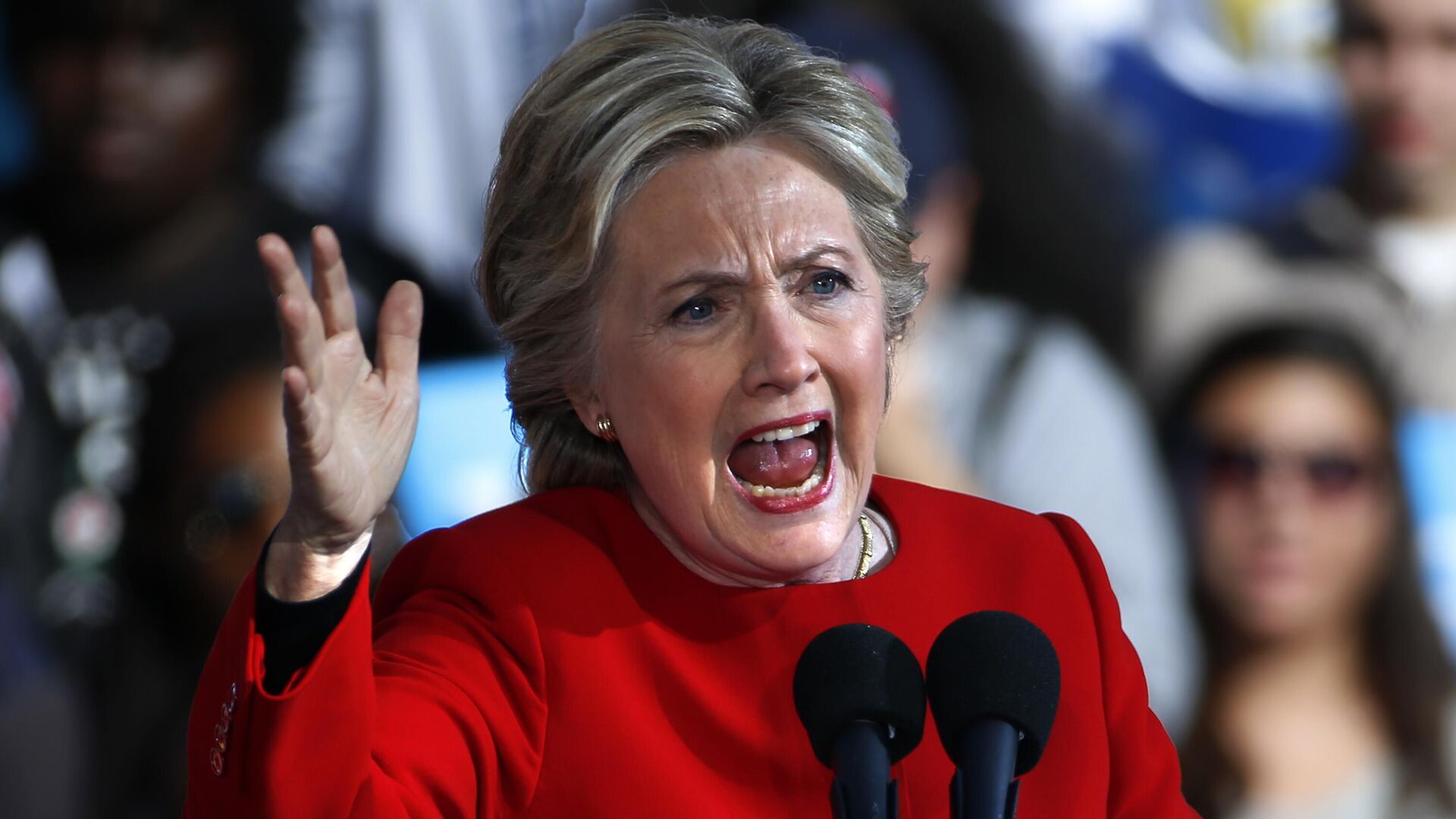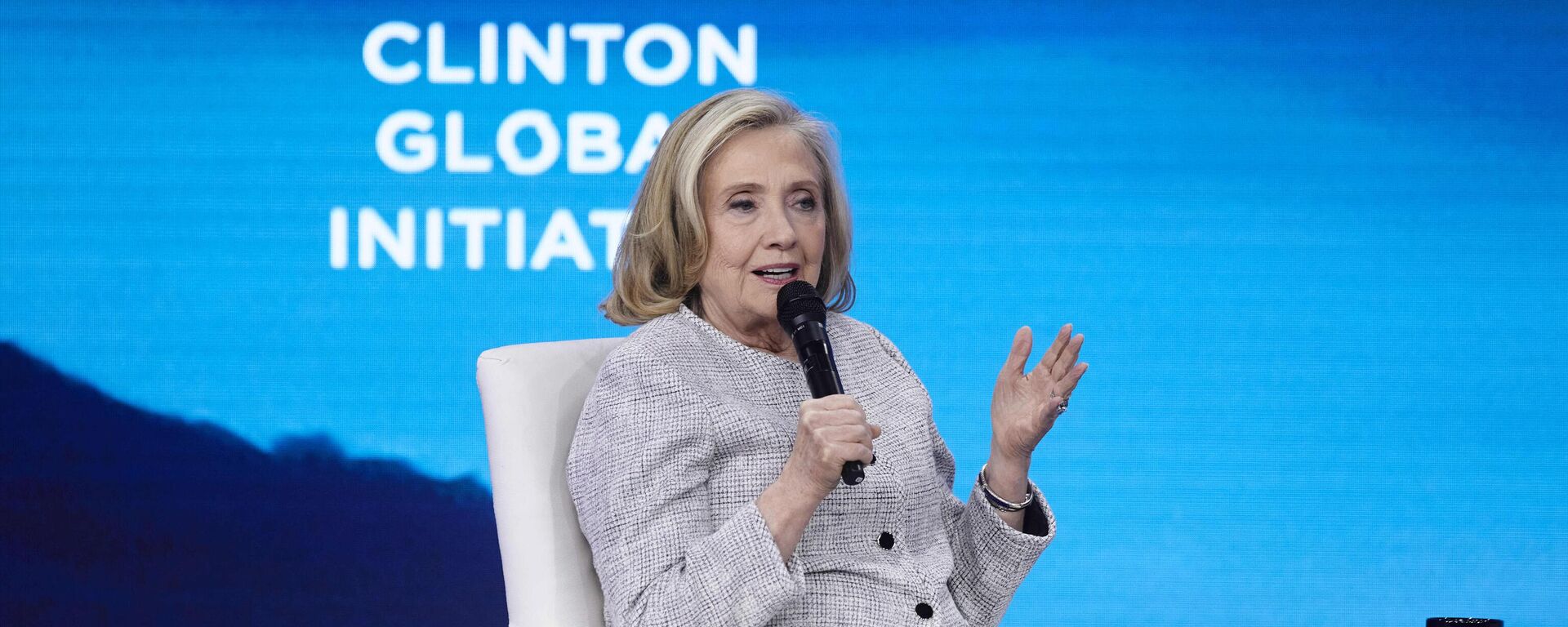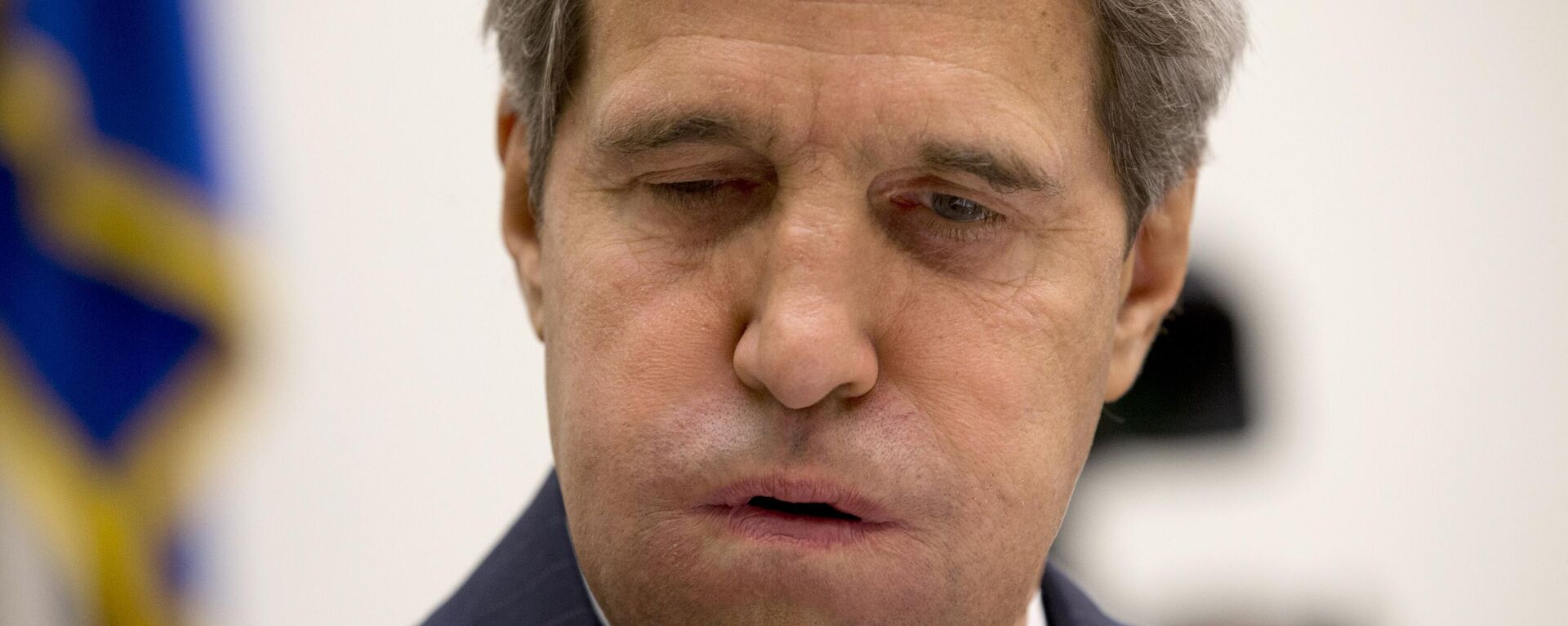Fearful of the Public, Western Leaders Turn to Censorship
22:44 GMT 07.10.2024 (Updated: 22:48 GMT 07.10.2024)

© AP Photo / Gene J. Puskar
Subscribe
On Saturday, former US First Lady Hillary Clinton called for increased federal regulation of the internet and repealing Section 230. “If the platforms… don’t moderate and monitor the content, we lose total control,” she said, raising the question of who “we” represents in that statement.
The recent purge of YouTube accounts, including those from Mark Sleboda, Rachel Blevins, Glenn Diesen, DD Geopolitics, Fiorella Isabel, Larry Johnson, and Eva K. Bartlett, it is clear that the Western leaders are scared of their populations finding out the truth about their policies and actions.
“We are not afraid to entrust the American people with unpleasant facts, foreign ideas, alien philosophies, and competitive values. For a nation that is afraid to let its people judge the truth and falsehood in an open market is a nation that is afraid of its people,” Former US President John F. Kennedy.
“That’s what they’re afraid of,” Sleboda, an expert in geopolitical relations and a frequent guest on Sputnik Radio, told The Final Countdown. “They don’t trust you to hear an alternate view from the official US government narrative and come to what they consider the right political conclusions.”
Many Americans were taught that freedom was proof-positive that Western-style democracies were superior to other systems.
In separate interviews, Sleboda and Blevins both said that their channels were taken down without warning or strikes. Both were accused of violating YouTube’s policies on hate speech and said their appeals were denied within minutes.
“Just anyone who is critical of a US foreign policy, of hegemony, has had their YouTube channels deleted,” Sleboda contended.
While the censorship technically came from Alphabet, the mega-monolith tech company that owns both Google and YouTube, a comprehensive program between the US government and large social media companies has slowly been revealed over the past couple of years making the line one without distinction.
“My lawyer called that First Amendment censorship via proxy, or government censorship via proxy,” Political cartoonist and The Final Countdown co-host Ted Rall explained. “The US government has reached out to big tech companies, talked to people like [Meta* CEO] Mark Zuckerberg and so on, and said, ‘we want you to control and squish what we call misinformation and disinformation.’”
With the internet practically ubiquitous in modern society, an expansion of the First Amendment to public and private sectors of the internet is needed to protect our speech rights.
“What does the First Amendment actually mean in today’s age when just about everyone is on social media or on the internet in some way, and it has become sort of the new public square?” asked Blevins, an independent journalist, and host of The Backstory on Radio Sputnik. “What are we okay with when it comes to the ongoing censorship? Because I don’t think it’s going away anytime soon.”
Even if the government were removed from the equation, and censorship came exclusively from the tech companies themselves they have become so powerful that acts of self-censorship would be indistinguishable from government-ordered censorship, especially during wartime.
In post-9/11 America, large media companies kept dissenting voices off the air, limiting the reach of those who, for example, opposed the war in Iraq.
“And you get that corporate mentality of what will the advertisers think?” legendary Gonzo journalist Hunter S Thompson argued in an August 2002 interview with Media Report. “A kind of we’re all in this together thinking.” The consolidation of the internet from disparate groups of message boards and newsgroups into a handful of omnipresent tech companies raises that specter again.
“As we saw this weekend, YouTube can come in and just delete your channel and take your life’s work away from you,” decried Blevin, noting that her channel was backed up on the free speech platform Rumble.
The majority of the deleted accounts offered views that opposed the NATO-led proxy war in Ukraine and/or Western support of Israel. As the war drums beat ever louder in Europe, the Middle East, and the South Pacific, not to mention the US Presidential election next month, the crackdown is likely to increase.
“They haven’t really thrown out the term election interference just yet, but I have a feeling that’s coming in some way,” warned Blevins.
“We’ll tell our grandchildren about the golden age of a global internet,” before censorship took it over, predicted Sleboda. “I think we’re going to see our internet fractured into either individual states’ internets or geopolitical block’s internets. And I think the process has already begun,” he warned.
*Banned in Russia for extremist activities



